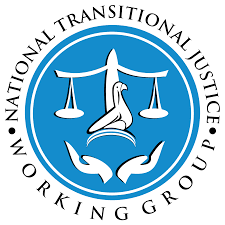The National Transitional Justice Working Group (NTJWG) has warned that a “dangerous situation” could emerge in Zimbabwe as a result of an increase in cases of violence and intimidation, attacks on democratic space and growing violence and intolerant discourse.
The group has urged the government and political party leaders to uphold the Constitution and seek to protect citizens’ fundamental human rights.
This warning comes as the NTJWG remembers the killing of seven persons by the army on August 1, 2018, while 35 others were injured as they protested the outcome of the 2018 presidential election.
Despite the Motlanthe Commission’s findings, the NTJWG accused the government of failing to implement them, particularly those concerning compensation and accountability.
The NTJWG also considers the fast-approaching 2023 elections, noting an increase in incidences of violence and intimidation.
“The election proclamation has set in motion accelerated election campaigns from all political players. As such, political tensions augmented by intolerance for divergent political views have been rising,” said the group.
Cases of violence against citizens have increased exponentially since the election date was announced, according to NTJWG.
According to Afrobarometer findings published in July 2023, ‘six in ten’ people expressed fear of becoming victims of political violence during elections and the State was implicated in over 73 percent of the 1 280 human rights violations documented by the Forum.
NTJWG claimed that fueled by impunity, security personnel continued to commit arbitrary arrests, assaults, abductions, and torture against opposition politicians, opposing voices and human rights activists.
“We see a return to a violent past as witnessed in 2008, where over 200 people were killed in the run-up to the election run-off, as was the case in 2000 and 2002. Increases in cases of violence and intimidation reported across the country flies in the face of a constitutional commitment to heal the nation. How do we begin the process of healing when the violence has not stopped and perpetrators are not brought to justice?” asked NTJWG.
With the rise in violence and intimidation, NTJWG claims Zimbabwe’s democratic space has shrunk significantly, citing the gazetting of the Private Voluntary Organisations Amendment Bill (PVO Bill) and the recent ascension to the Criminal Law (Codification and Reform) Act [Chapter 9:23] (the patriotic provisions).
NTJWG expressed concern Zimbabwe remains a country with deep-seated political intolerance, which is exacerbated by hate speech.
“Recently, intolerance of divergent political views has increased political tensions in the country, mainly through harassment and bullying that is now commonplace on social media platforms between supporters of political parties,” said the group.
“Of concern is the lack of accountability for those who perpetuate hate speech. Abton
‘Bhito’ Mashayanyika, who called for the killing of CCC leader Nelson Chamisa and his family during a Zanu PF rally in Mberengwa on 12 July 2022, is yet to be arrested despite the existence of video footage that went viral.”
Confidence in state institutions has also collapsed, said NTJWG, noting the growing suspicion between citizens and the State, building from decades of perceived capture of these institutions by politicians.
“This suspicion has resulted in a general lack of confidence in institutions such as the Zimbabwe Electoral Commission (ZEC), National Peace and Reconciliation Commission (NPRC) and the Zimbabwe Republic Police (ZRP),” said NTJWG, adding “no effort has been put into building the confidence of citizens which set the stage for confrontation, making the 2023 elections a rich arena for violence.”
The organisation said the judiciary was clearly captured, as it has been weaponised to settle political scores, contributing to lack of confidence in the judiciary.
“Since the start of the ‘new dispensation’ through a military coup in 2017, Zimbabwe has set regional records for the number of days arrested persons have spent in pre-trial detention. The worrying trend of prolonged pretrial incarceration of political detainees is characterised by arbitrary arrests based on frivolous charges, followed by repeated denial of bail on flimsy grounds,” said the group.
Such has been the case for CCC Member of Parliament Job Sikhala, who has been languishing in prison for more than 205 days on allegations of inciting violence.
Other examples include Allan Moyo (he spent 72 days in remand), Takudzwa Ngadziore (40 days), Jacob Ngarivhume (43 days), Hopewell Chin’ono (45 days) and Godfrey Kurauone (46 days).
“Having identified these, among many other issues, we see a dangerous situation developing in Zimbabwe,” NTJWG said and called upon the government and leadership of political parties to respect the Constitution and work towards safeguarding the fundamental human rights of citizens.
The group recommended setting up of a high-level inclusive multi-sectoral mediation initiative to assist ZEC in addressing the current situation and make sure all contested issues are ironed out and shepherd Zimbabwe through the election into post-election reconciliation.

